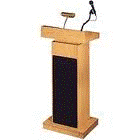
Discipline-Based Education Research Group Speaker Series
Date of this Version
11-20-2014
Document Type
Presentation
Citation
DBER Group Discussion on 2014‐11‐20
Abstract
The Cedar Point Experience was born in the summer of 1975. At the urging of several biology faculty UNL leased the Goodall Cedar Point Girlscout Camp and offered a broad range of field based courses exploiting the local environment as their classroom. These instructors also had a strong interest in the area as a base for their own research. Today the UNL Cedar Point Biological Station with a few additional buildings can support around 100 people with full service dining, housing, classroom and lab space.
The instructional model has remained unchanged for the past 40 years. Field based or place based courses offered as a focused block, residential learning experience. A traditional semesters worth of material covered in only a few weeks with the focus on learning through collecting and manipulating materials that are in their natural context. Limited lecture time and maximum field and lab time. CPBS has a solid tradition of making you tired, cold or very sweaty, wet and muddy. The separation of human from the natural environment is kept to a minimum and personal interaction with fellow students and the instructors and the resident research community is maximized. The Cedar Point Experience creates life long personal bonds and personal shifts in world view.
The ecologists who have taught at CPBS the past 40 years pretty much take the Cedar Point Experience as a normal field station effect; “this is why we teach courses in the field.” What they have not typically done is formally assess the experience relative to the traditional lecture based courses on main campus. We do have a collection of statements from decades of student surveys:
…the best class I took in college!
Getting your hands dirty and actually doing biology is much more educational than lecture classes.
It was one of the top 3 life experiences I’ve had.
Great classes and instructors.
On a scale from 1‐10, I rate it a 100. I liked the field experience where you can see, touch, breathe, and live the organisms, their ecology, etc.
I liked the hands‐on work and the close interactions we were able to have with the instructors.
I took 16 credit hours, best portion of my undergraduate education.
I really enjoyed this experience (one of my best college experiences). I liked the closeness of students and faculty.
The experience is great. You get to know faculty and students on a personal basis & you really learn the material well.
CPBS was awesome
The best teacher that I've had all throughout college. This 3‐week course was a great biological experience. It was fun!
Cedar point = great experience
I enjoyed everything about Cedar Point.
It is a great place to make friends and learn.
I had a really good time and am glad I chose to come here.
I loved Cedar Point!
Currently, several courses are taught at both CPBS and the UNL Campus; such as LIFE 121, BIOS 207 (Evolution and Ecology), NRES 433, NRES 220, BIOS 475 and there is an opportunity here to go beyond anecdotal student and instructor statements. To ask if students really do retain 2 or 3 times the knowledge in a field based course. Many students say they learned a lot more than they usually expect to. Is there a world view shift from the educational experience? There are also 40 years of alumni to interview. You can ask what did you learn in this course not 3 months after the final but 5, 10 or 20 years later. The CPBS alumni always have a lot to say about their Cedar Point Experience. Students who took Limnology or Ornithology in 1975 can easily list many of their fellow undergraduates and much of the course content as if it were just last month.


Comments
Copyright (c) 2014 Jon Garbisch